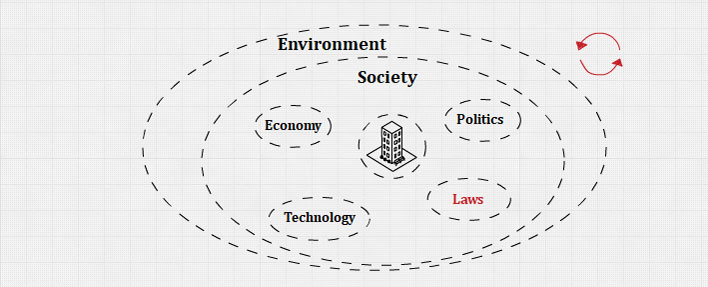What is Legal Force?

The legal force centers on how the courts influence business activity.
The legal force consists of factors related to the regulation of economic activities by the government that has an impact on the business of an organization.
Legal force represents outcomes of changes in laws and regulations. They result from legal developments within society and significantly affect companies. Society’s laws constraint the operations of organizations and thus create trends and events that signify both opportunities and threats.
Governments of the nation, states, and local area play a constructive role as the custodian of citizens. To protect and promote the interests of citizens, they resort to legal activities which can be done through constitutional provisions and industrial laws.
Businesses are closely related to the government. Regulations formed in response to new national, regional, state, and/or local laws that are legislated often influence a firm’s competitive actions and responses.
The legal environment includes various legislations passed by the government administrative orders issued by government authorities, court judgments as well as the decisions rendered by various commissions and agencies at every level of the government – federal, or state.
Examples of important legal factors include employment laws, health and safety regulations, discrimination laws, and antitrust laws.
Some of the important areas of control are: (1) industrial policy and licensing; (2) monopolies and restrictive trade practices; (3) legislation related to a company’s operation; (4) import and export control and control over foreign exchange; (5) control over foreign investment and collaboration; (6) control through consumer protection; and (7) control of environmental pollution.
Legal factors follow on from political factors, as the governments often pass laws that affect business.
In most countries, the interplay between political and legal forces, on the one hand, and industry competitive structure, on the other, is a two-way process in which the government sets regulations that influence the competitive structure, and firms in an industry often seek to influence the regulations that governments enact by a number of means.
Firms may provide financial support to politicians or political parties that espouse views favorable to the industry and lobby government legislators directly to shape government regulations.